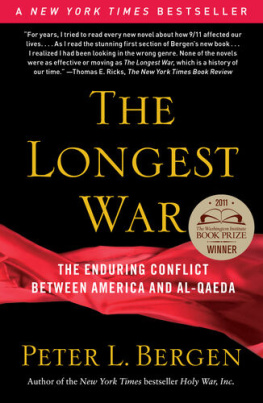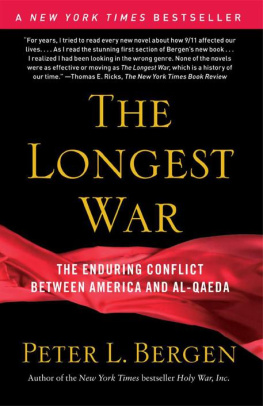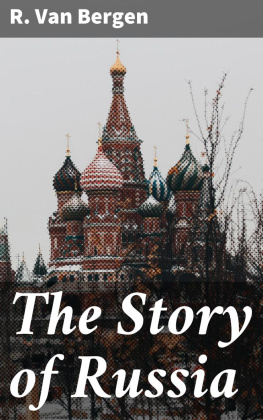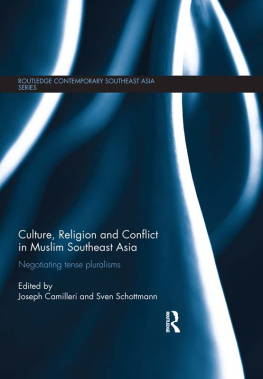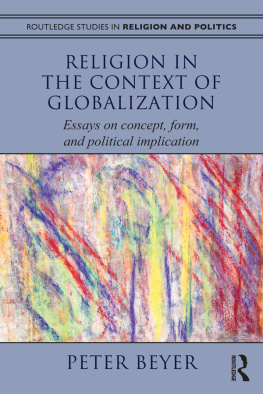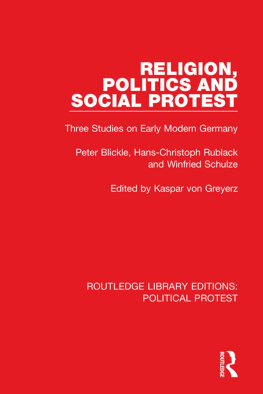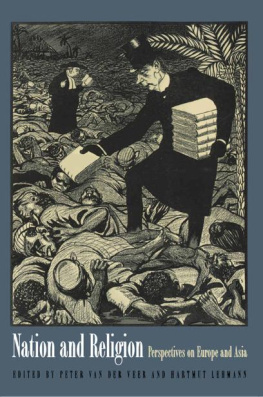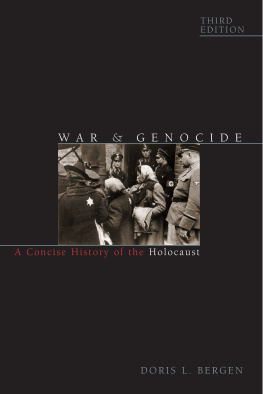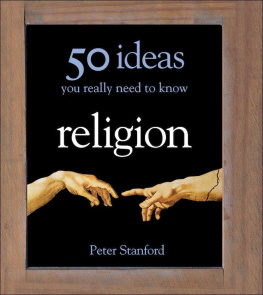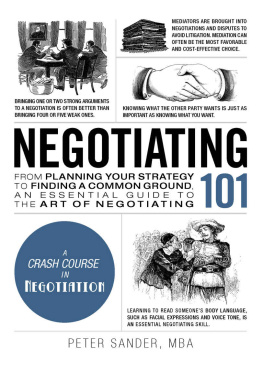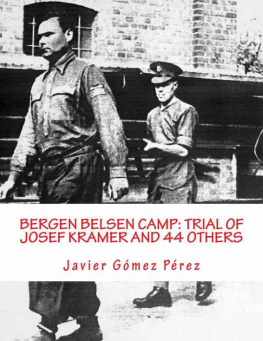Peter Bergen - Talibanistan: Negotiating the Borders Between Terror, Politics, and Religion
Here you can read online Peter Bergen - Talibanistan: Negotiating the Borders Between Terror, Politics, and Religion full text of the book (entire story) in english for free. Download pdf and epub, get meaning, cover and reviews about this ebook. year: 2013, publisher: Oxford University Press, genre: History. Description of the work, (preface) as well as reviews are available. Best literature library LitArk.com created for fans of good reading and offers a wide selection of genres:
Romance novel
Science fiction
Adventure
Detective
Science
History
Home and family
Prose
Art
Politics
Computer
Non-fiction
Religion
Business
Children
Humor
Choose a favorite category and find really read worthwhile books. Enjoy immersion in the world of imagination, feel the emotions of the characters or learn something new for yourself, make an fascinating discovery.

- Book:Talibanistan: Negotiating the Borders Between Terror, Politics, and Religion
- Author:
- Publisher:Oxford University Press
- Genre:
- Year:2013
- Rating:3 / 5
- Favourites:Add to favourites
- Your mark:
- 60
- 1
- 2
- 3
- 4
- 5
Talibanistan: Negotiating the Borders Between Terror, Politics, and Religion: summary, description and annotation
We offer to read an annotation, description, summary or preface (depends on what the author of the book "Talibanistan: Negotiating the Borders Between Terror, Politics, and Religion" wrote himself). If you haven't found the necessary information about the book — write in the comments, we will try to find it.
Talibanistan: Negotiating the Borders Between Terror, Politics, and Religion — read online for free the complete book (whole text) full work
Below is the text of the book, divided by pages. System saving the place of the last page read, allows you to conveniently read the book "Talibanistan: Negotiating the Borders Between Terror, Politics, and Religion" online for free, without having to search again every time where you left off. Put a bookmark, and you can go to the page where you finished reading at any time.
Font size:
Interval:
Bookmark:
all rights reserved. no part of this publication may be reproduced, stored in a
retrieval system, or transmitted, in any form or by any means, without the prior
permission in writing of Oxford University Press, or as expressly permitted by law,
by license, or under terms agreed with the appropriate reproduction rights organization.
inquiries concerning reproduction outside the scope of the above should be sent to the Rights
Department, Oxford University Press, at the address above.
You must not circulate this work in any other form
and you must impose this same condition on any acquirer.
[insert Cataloguing Data]
isbn-13: 978 989309 6 (pbk); 978 989307 2 (cloth)
1 3 5 7 9 8 6 4 2
Printed in the United states of america
on acid-free paper
00_Bergen_FM.indd 4
20/08/2012 6:54:54 AM
OUP UNCORRECTED PROOFS 8/20/2012
Contents
Acknowledgments vii
Contributors ix
Introduction xi
Peter Bergen
one The Taliban in Kandahar 1
Anand Gopal
two The Relationship between al-Qaeda and
the Taliban 70
Anne Stenersen
three The Taliban in Zabul and UruzganBijlert 95
Martine van
four The Taliban in North Waziristan 130
Mansur Khan Mahsud, Anand Gopal,
and Brian Fishman
five The Taliban in South Waziristan 166
Mansur Khan Mahsud
six Pakistan s Counterinsurgency Strategy 205
Sameer Lalwani
seven CIA Drone Strikes and the Taliban 233
Peter Bergen and Jennifer Rowland
00_Bergen_FM.indd 5
21/08/2012 4:23:55 AM
OUP UNCORRECTED PROOFS 8/20/2012
eight The Drone War: View from the Ground 241
Pir Zubair Shah
nine Public Opinion in Pakistan s Tribal
Regions 252
Ken Ballen, Peter Bergen and Patrick
Doherty
ten The Political landscape of the Taliban
insurgency 266
Hassan Abbas
eleven The Taliban in swat 294
Daud Khattak
twelve The Taliban in bajaur 319
Rahmanullah
thirteen The Taliban in Pakistan: an Overview 341
Brian Fishman
fourteen The 80% solution: The strategic Defeat of
al-Qaeda 395
Dr. Thomas F. Lynch III
fifteen Taliban Reconciliation 441
Thomas Ruttig
Index 495
vi
Contents
00_Bergen_FM.indd 6
20/08/2012 6:54:54 AM
OUP UNCORRECTED PROOFS 8/20/2012
Acknowledgments
First, thanks to my coeditor Katherine Tiedemann, who
spent countless hours working with the researchers in this book
to help shape their work and make a complex subject as accessible
as feasible. (After Katherine left the New America Foundation in May
2010 she was not involved further in preparing this volume.) Thanks
also to Andrew Lebovich and Jennifer Rowland of New America, who
helped to finalize the book as it went into production.
Thanks to thank Brian Fishman and Patrick Doherty at New
America, who helped to shape this project in myriad ways . And thanks
to Steve Coll, the president of New America, who provided critical
intellectual and moral support to this project. Thanks to Simone Frank
of New America, who handled the many contractual issues that arose
while working with more than a dozen authors, many of whom are
based in Pakistan or Afghanistan.
Thanks also to all of the researchers in this book who worked long
and hard to make their chapters as authoritative as possible while writ
ing on a subject that is simultaneously often obscure and in some
cases, quite risky.
Thanks to Marin Strmecki of the Smith Richardson Foundation,
who was instrumental in making this book happen by providing both
critical financial and intellectual support to this project. Barmak
Pazhwak of the United States Institute of Peace also provided funding
and intellectual support for the poll we conducted in Pakistan s tribal
regions. Thanks to Troy Schneider of New America and Development
00_Bergen_FM.indd 7
21/08/2012 4:24:13 AM
OUP UNCORRECTED PROOFS 8/20/2012
seed for conceptualizing and creating the data visualization for that
poll, which can be found at . Thanks also to
our partner on the ground who conducted that poll, the Community
appraisal and Motivation Programme.
The Pashtun journalist imtiaz ali was very helpful throughout this
project, as was copyeditor Keith sinzinger. Thanks to Gene Thorp for
the handsome maps that can be found throughout this book.
Thanks to editor Timothy bent at Oxford University Press, who
believed in this project from its inception and who has been an unfail
ingly helpful and thoughtful collaborator; and to his colleague Keely
latcham, who helped to bring the book through the production
process.
Thanks finally to my wife, Tresha Mabile, who has spent time on
the ground in both afghanistan and Pakistan reporting on the Taliban
for national Geographic Television and who has been, as always, sup
portive of this project.
Peter bergen, Washington DC, July 2012.
viii
Acknowledgements
00_Bergen_FM.indd 8
20/08/2012 6:54:54 AM
OUP UNCORRECTED PROOFS 8/20/2012
Contributors
Hassan Abbas was Quaid-i-azam chair professor at Columbia
University and is now professor at national Defense University. He
previously held high-ranking positions in the Pakistani police.
Ken Ballen is the author of Terrorists in love and the president of
Terror Free Tomorrow, a nonpartisan organization that studies extrem
ism around the world.
Peter Bergen , Cnn s national security analyst and author of four
books on al-Qaeda, is a director at the new america Foundation.
Martine van Bijlert is the co-director of the afghanistan analysts
network and is based in Kabul.
Patrick Doherty is the director of the smart strategy Program at the
new america Foundation.
Brian Fishman is a counterterrorism research fellow at the new
america Foundation.
Anand Gopal is a journalist who has reported for the Wall street Journal,
the Christian science Monitor, and other outlets on afghanistan. He is
writing a history of afghanistan after september 11, 2001, to be pub
lished by Henry Holt .
Daud Khan Khattak is a Pashtun journalist currently working with
Radio Mashal, a project of Radio Free Europe/Radio liberty in
00_Bergen_FM.indd 9
20/08/2012 6:54:54 AM
OUP UNCORRECTED PROOFS 8/20/2012
Prague. Khattak has worked with Pakistan s English dailies The news
and Daily Times and afghanistan s Pajhwok afghan news, and he has
also written for the Christian science Monitor and london s sunday
Times.
Sameer Lalwani, a research fellow at the new america Foundation,
is pursuing a Ph.D. in political science at the Massachusetts institute
of Technology.
Dr. Thomas F. Lynch III is Distinguished Research Fellow for south
asia and the near East at the Center for strategic Research, part of the
national Defense University s institute for national strategic studies
(nDU-inss).
Mansur Khan Mahsud is the research coordinator for the FaTa
Research Center, an islamabad-based think tank. He is from the
Mahsud tribe of south Waziristan and has worked with several nGOs
and news outlets as a researcher. He holds a master s degree in Pakistan
studies from the University of Peshawar.
Rahmanullah is a Pashtun journalist working with the bbC in Peshawar.
Previously, he worked with Pajhwok afghan news and has written for
numerous local and foreign publications. He uses one name.
Jennifer Rowland is a program associate at the new america
Foundation.
Thomas Ruttig i s the co-director of the afghanistan analysts network.
He speaks Pashtu and Dari.
Pir Zubair Shah, a journalist hailing from Waziristan, is the Edward
Murrow fellow at the Council on Foreign Relations and is one of a
small group of new York Times journalist who won the Pulitzer Prize
for their coverage of afghanistan and Pakistan in 2009.
Anne Stenersen is a research fellow at the norwegian Defence
Font size:
Interval:
Bookmark:
Similar books «Talibanistan: Negotiating the Borders Between Terror, Politics, and Religion»
Look at similar books to Talibanistan: Negotiating the Borders Between Terror, Politics, and Religion. We have selected literature similar in name and meaning in the hope of providing readers with more options to find new, interesting, not yet read works.
Discussion, reviews of the book Talibanistan: Negotiating the Borders Between Terror, Politics, and Religion and just readers' own opinions. Leave your comments, write what you think about the work, its meaning or the main characters. Specify what exactly you liked and what you didn't like, and why you think so.


